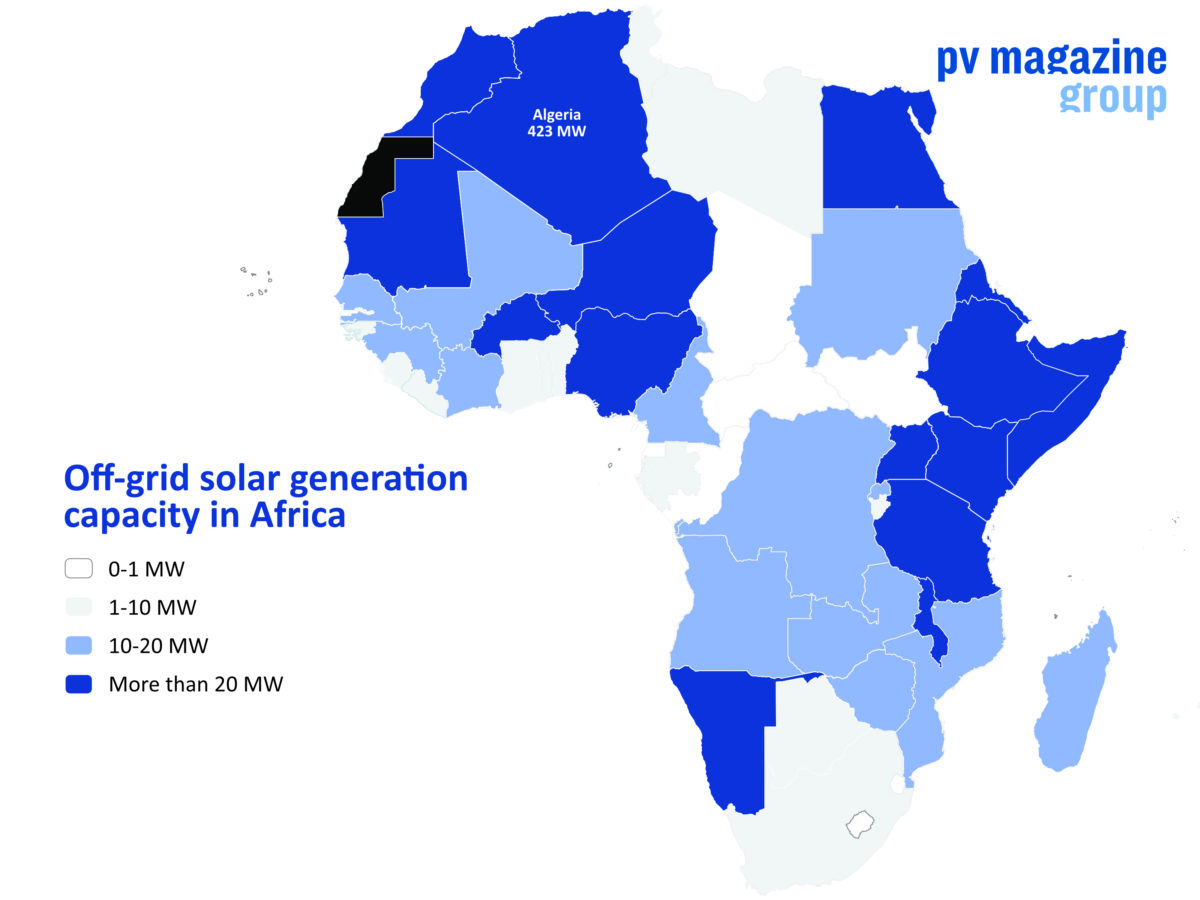Nigeria has introduced the franchising of its electricity distribution networks in a move which the authorities say will encourage the development of renewables.
Abdu Bello Mohammed, chief of staff at regulator the Nigerian Electricity Regulatory Commission, told a webinar held by German development ministry entity Green People's Energy and Brussels-based membership body the Alliance for Rural Electrification, his nation's 11 electric distribution companies are franchising portions of their network to private providers in a move which could foster mini-grid provision.
Mohammed and power sector peers from Ethiopia, Namibia and Ghana were responding to concerns voiced by German former politician Bärbel Höhn, who listed some of the obstacles to renewables roll-out she had witnessed in her unpaid role as commissioner for energy reform in Africa for development ministry the Deutsche Gesellschaft für Internationale Zusammenarbeit.
AgriPV
Stressing the need to win hearts and minds to the clean energy cause, and referring to the successes achieved in her homeland, Alliance '90/Green Party member Höhn said subsidies for fossil fuel-fired power were a problem, with consumers in some African nations paying as little as US$0.05/kWh for conventional electricity.
Clean power developers would not be willing to invest for such low returns, said the former Bundestag MP and minister for agriculture in the German state of North Rhine-Westphalia, who added, bureaucracy and lack of support for private companies was also a hurdle to renewables in some African states. Höhn also called for high-quality equipment and comprehensive training, to sell the efficiency and job creation benefits of clean power.
Mohammed said Nigeria has mini-grid regulation in place that ensures installers of solar systems with a generation capacity of up to 100 kW need only complete a basic registration process and, for systems between 100 kW and 1 MW, a simple online permit was all that was required. The regulator representative said licences would be required only for systems bigger than 1 MW and added, Nigeria offers a feed-in tariff for solar facilities with generation capacities of up to 5 MW.
The country, said Mohammed, is aiming for 8 GW of renewables generation capacity this decade.
Bahru Oljira Debel, from the Ethiopian Energy Authority, said his nation also had mini-grid regulation in place, under an Energy Mini-grid Directive. The government of prime minister Abiy Ahmed, sworn in for a new five-year term at the start of the month, is considering further moves to foster private-sector involvement in off-grid generation and renewables plants, Debel told the webinar.
Namibia
With a population density of just 2.9 people per square kilometer, according to worldatlas.com, household solar is the most effective way to provide electricity to the people of Namibia, said Pinehas Mutota, from the nation's Electricity Control Board.
Mutota said his country is making strides in renewables, with around 60 MW of generation capacity operating under a net-metering regime which has been in place since 2017, and with consumers able to shop around for their power provider.
Whilst Ghanaian electricity customers pay no more than US$0.10/kWh for consumption of up to 50 kWh per month – thanks to the kind of fossil fuel subsidies highlighted by Germany's Höhn – Wisdom Ahiataku Togobo, from state-owned hydro and solar company Bui Power Authority, pointed to the fact greenhouse gas emitters in Ghana are taxed on their CO2 output, with the money raised ring-fenced for off-grid electrification and renewables, following an amendment to the 2011 Renewable Energy Act.
This content is protected by copyright and may not be reused. If you want to cooperate with us and would like to reuse some of our content, please contact: editors@pv-magazine.com.



By submitting this form you agree to pv magazine using your data for the purposes of publishing your comment.
Your personal data will only be disclosed or otherwise transmitted to third parties for the purposes of spam filtering or if this is necessary for technical maintenance of the website. Any other transfer to third parties will not take place unless this is justified on the basis of applicable data protection regulations or if pv magazine is legally obliged to do so.
You may revoke this consent at any time with effect for the future, in which case your personal data will be deleted immediately. Otherwise, your data will be deleted if pv magazine has processed your request or the purpose of data storage is fulfilled.
Further information on data privacy can be found in our Data Protection Policy.